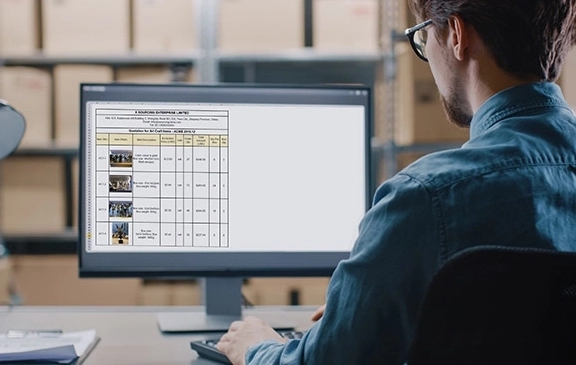
| Condition | Description |
| Starting Funds | Adequate capital is essential to cover the costs associated with importing, such as purchasing products, shipping fees, and customs duties. Planning your budget carefully will ensure a smooth operation. |
| Sales Channel | Identifying the right sales channel is crucial for distributing your imported goods. Whether it’s online platforms, retail stores, or wholesale distribution, having a clear strategy will enhance your market penetration. |
| Import Authority | Acquiring the necessary import licenses and permits is mandatory. Understanding the regulatory requirements of both China and your home country will help avoid legal complications. |
| Communication Tools | Effective communication tools are vital for maintaining clear and consistent contact with suppliers in China. Utilizing platforms like email, WeChat, or Skype can facilitate negotiations and ensure timely updates on production and shipping. |
The first advantage of importing from China — cost savings. Chinese price manufacturers at a lower price based on cheap labor, and economic scale, so that after importing, maximizing profit. With lower labor costs and economies of scale, Chinese manufacturers tend to provide very competitive pricing making maximum profit margins for importers.
China has made substantial improvements in manufacturing quality over the years. Many factories adhere to international standards, ensuring that products meet quality expectations. Implementing robust quality control measures can further guarantee product reliability.
The Chinese government supports international trade with policies that promise sales of goods abroad. This consists of tax breaks and facilitation in the context of bilaterals, which makes it even more attractive for foreign enterprises to work with Chinese suppliers. Such advantages include tax incentives and simpler procedures that can help lure foreign businesses to do business with Chinese suppliers.
| Factors to Consider | Description |
| Export Trends | Analyze current export trends to identify popular products with high demand in your target market. |
| Production Capacity and Product Availability | Assess the production capacity of suppliers to ensure consistent product availability. |
| Product Adaptability | Choose products that can be easily adapted or customized to meet local consumer preferences. |
| Target Markets | Identify specific target markets that align with your product offerings for effective marketing strategies. |
| Demand Stability | Evaluate demand stability over time to minimize risks associated with fluctuating market conditions. |
| Trade Restrictions | Be aware of trade restrictions or tariffs that may impact the importation of certain goods. |
| Profitability | Calculate potential profit margins to determine if the product is financially viable for importation. |
Utilize online wholesale websites such as Alibaba and Made-in-China to find reputable suppliers offering competitive prices and a wide range of products.
Attend trade fairs like Canton Fair or Yiwu Fair to establish direct connections with suppliers, assess product quality firsthand, and negotiate favorable terms.
Consider hiring sourcing agents who possess local expertise and can facilitate supplier negotiations, quality inspections, and logistics arrangements on your behalf.
It is important to be aware of the relevant regulations and restrictions imposed by Chinese Customs. These include export quotas, export taxes, certification requirements, and restrictions transferred by the importing country. A reliable source of this knowledge would be Chinese freight forwarders or customs brokers, they should be able to provide you with this information without hassle. It gives professional guidance and helps in tackling the complicated specifications of Chinese export policies.
Create a contract for all orders clearly laying out all terms, including pricing, delivery timelines, payment methods, and quality standards that you and the supplier agree on. All terms should be stipulated in the contracts you sign with your suppliers such as price, delivery schedule, payment methods, and quality standards.
Choose the right freight forwarders who can handle international logistical hurdles so you can book timely shipments without overpaying for the cost of transportation hold-ups or cargo lost damage. Efficient Cargo Shipment: The smoother you can make international logistics, the less you will pay in terms of shipping delays or damages in transit, so choose your freight forwarders wisely.
It depends on what specifically you are bringing into your country from China, but as a general rule, an import license or permit is needed. Ensure Compliance with Local Import Laws Research rules and regulations on hard and soft intellectual property in your destination country to ensure customs clearance. Always ensure you check on import laws to make sure your product clears customs without a hitch.
Key documents include a commercial invoice, packing list, bill of lading or airway bill, certificate of origin, and any required import permits. Ensure all documentation is accurate and complete to avoid delays at customs.
With a suite of services to optimize the import process from China, X Sourcing handles it all. From finding quality products to vetting suppliers, auditing factories, and handling logistics. X Sourcing reduces the hassle of importing through end-to-end solutions so that the businesses only need to focus on the core operations. The team of skilled professionals they have, make sure that all the components of the supply chain are efficient and cost-effective.

The benefits of working together with X Sourcing create a successful experience for imports. One, they have a well-established network of reputable suppliers who offer a variety of products at great prices. Their intimate understanding of dynamics in the Chinese market also means they are better equipped to handle challenges along the way. Thirdly, quality assurance is one of the key features of X Sourcing, allowing businesses to expect stable standards in products without constant supervision.
Additionally, X Sourcing takes care of all logistics (shipping and customs clearing) so importers do not have to deal with a lot of unnecessary admin. Such end-to-end support helps mitigate risks and also shortens the time-to-market for imported goods. Ultimately, partnering with X Sourcing enables businesses to seize opportunities in the global marketplace with minimized risk, enabling them to navigate the common traps that accompany importing from China.